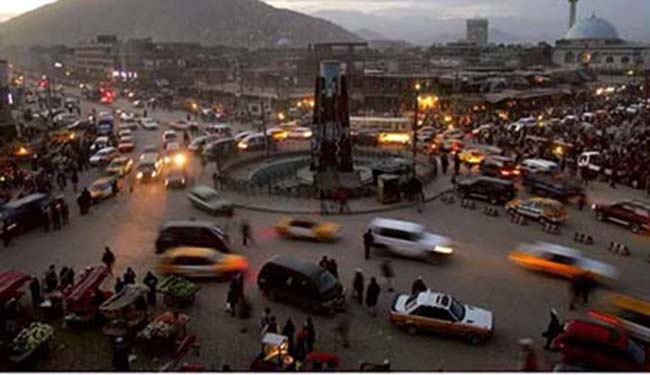Kabul is the heart of political, commercial, cultural, educational and social life in Afghanistan and the fifth fastest growing city in the world. Due to Lack of adequate employment opportunities, basic utility services in remote provinces and centralized government policy constantly people moved to Kabul and other cities. But the chaotic traffic system left many in despair. The traffic jam has become a never-ending challenge that neither the authorities nor the residents of the city can resolve. The urgent vehicles such as ambulance, fire brigade and patients are hardly possible to reach their destination on time. Likewise, school students, public and private personnel also other citizens often stuck for several hours behind traffic crowds. The working vendors, carters, porters and parked vehicles - often occupy half-side of the roads in some parts - only add to this serious pressing issue. In addition, growing Noise pollution, accumulation of garbage and overall the contaminated environments has taken comfort from Kabul residents.
The growing population in Kabul city, non-compliance with traffic rules, heavy machinery such as trucks and buses, lack of standard traffic infrastructure, large number of hawkers as well as the increasing number of vehicles automatically deteriorates the traffic situation. Let’s not forget the omnipresent potholes, bumpy roads, and pedestrian overflow that further cause frustrations and delays. According to statistics provided by relevant authorities annually 30 to 35 thousand vehicles newly enter Kabul city while the mayor’s office had estimated that there are already 700,000 vehicles on the narrow streets of Kabul, which can only accommodate about 30,000.
Traffic management is extremely poor ever since could not bring significant changes in past 15 years; they often blame one and other for the issues. It said that their contact person actively attempt to collect bribe and issue driver license. Roadside assistance such as traffic signs and facilities are rarely seen. Vehicular traffic is disorganized and must contend with numerous pedestrians, bicyclists and each other. Comparing certain ethnic residential area to others are not built equally and balanced. People always complain about discriminations which frequently lead to tremendously social hatred and angers. With congested roads and abundant pedestrian traffic vehicle accidents are a serious concern and can escalate into violent confrontations. In brief, effective steps are not taken towards traffic infrastructure and management. All people have to tolerate the pressing condition and all drivers need to drive defensively with paying close attention to their surroundings.
People are extremely unsatisfied but often keep silent because of being hopeless; some drivers blame the Traffic Policy officials for charging illicit fines and asking for bribes. According to Tolo News, Kabul Traffic Police have reputed accusations of improper fines and bribery, explaining that most people aren’t aware of the regulations for drivers and so they are in frequent violation. “Traffic [Police] causes us problems, they ask for a License and our cars’ documents in every square, and when we show them, they make up an excuse about how your car is overloaded. Many blame high ranking governmental authorities who block the city’s roads while commuting from one side of the city to another mainly due to security concerns. When one road is blocked, the city turns into a bedlam, where all the vehicles, no matter where they are headed to, have to be on the same road. This is something that the residents of Kabul city have to tolerate, as the security situation of the high ranking government officials is a priority. Meanwhile, Traffic Police officials accuse the drivers of lacking driving etiquettes. It would not be surprising to see cars moving against traffic on one-way streets, ignoring traffic lights and driving recklessly fast. Nevertheless, with virtually no signage, few traffic lights and no lane demarcation, it is hard to hold individual drivers or Traffic Officers entirely responsible for the unruly nature of driving in Kabul.
Finally, There are different kinds of challenges to Kabul, transportation system, primary pertaining to management, infrastructure, and planning of transportation system of Kabul, as far management the challenges pertain to old and obsolete traffic laws system, weak governance for implementation of traffic law and order, are the major conce.In case of infrastructure of transportation system of Kabul, also have some challenges, like no traffic lights in the city, narrow road of Kabul city, inadequate parking, slow vehicle movement, etc. Based on these the following are some of suggestions can be proposed:
1- Kabul Police Traffic Department (KPTD) has to craft effective strategy for the control of all illegal, unregistered & unlicensed cars throughout Kabul city. And remove unnecessary check points/ blocks in city.
2- The working vendors, carters, porters and parked vehicles must be managed.
3- KPTD and police complained about the government employees (parliamentarians, ministers, relative of ministers, directors etc) are more frequent violators of rules. So government employees will need to cooperate, traffic police in sense to follow traffic rules.
4) Flyovers and subway are helpful in reduction of traffic problem, so it will to be in appropriate location, because very few people use it and more people do not use due in appropriate locations and poor engineering system.
5) Very few cars parking in city of Kabul compel the drivers to park their cars anywhere. So it necessary for government to construct suitable cars parking in suitable places of Kabul city.
6) Inadequate traffic police were also one reason to control the congested traffic system of Kabul city, so there is need to hire new police for the control of congested traffic problem in Kabul city.
7) To rebuild as well build new traffic signals throughout city Kabul.
8) To facilitate the work in progress on roads network, and construct all roads in important part of the Kabul city.
Home » Opinion » The Endless Traffic Challenge in Kabul
The Endless Traffic Challenge in Kabul
| Mohammad Zahir Akbari

